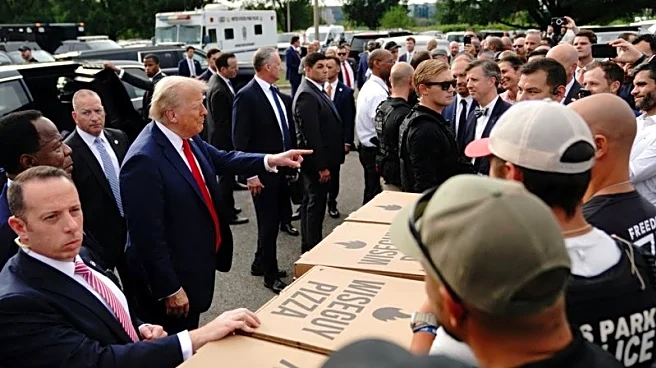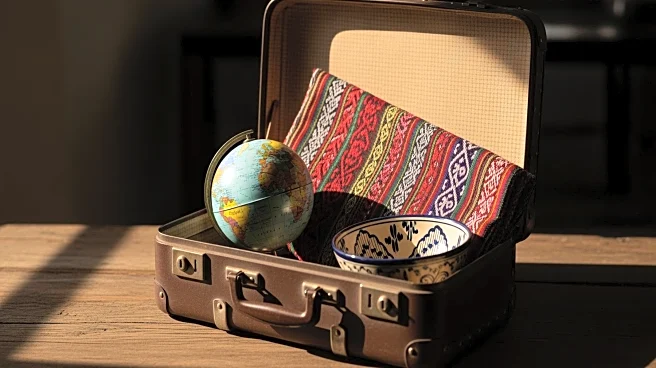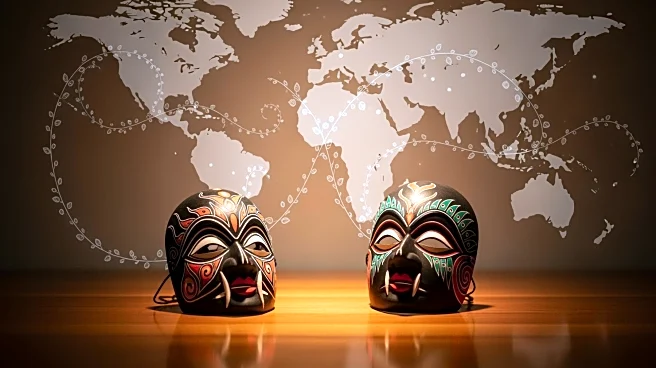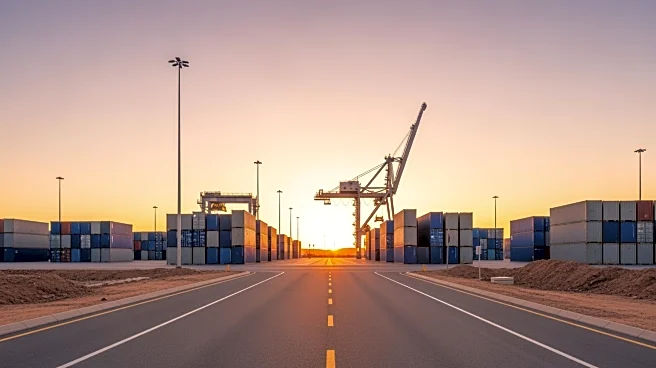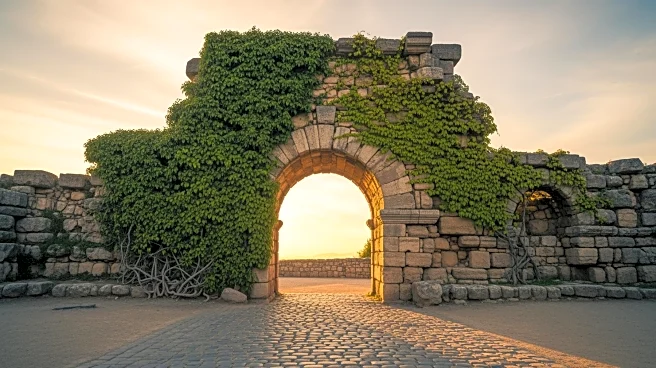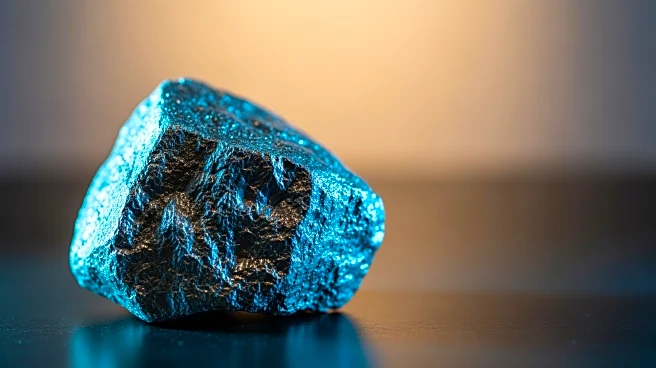By Steve Holland and Nandita Bose
WASHINGTON (Reuters) -U.S. President Donald Trump took his law-and-order message to the streets of the nation's capital on Thursday, visiting a command center to thank
law enforcement officers who are carrying out his crime crackdown.
Trump last week deployed National Guard soldiers and federal agents to the city. He said he was temporarily taking over the city's police department in an extraordinary assertion of presidential power, citing what he said is a violent crime wave.
City officials have rejected the assertion, pointing to federal and city statistics that show violent crime has declined significantly since a spike in 2023.
Trump, without citing evidence, told several hundred uniformed personnel gathered at the U.S. Park Police Anacostia Operations Facility that their efforts were leading to a drop in crime.
"It's like a different place," he said at the facility, which serves as a headquarters for the southeast section of Washington. "Everybody is safe now."
"We're going to have the best capital ever," he vowed.
Washington Mayor Muriel Bowser, asked by reporters earlier on Thursday if the city was safer now, said the capital has seen a decrease in crime for the last two years.
"We expect that having 500 additional officers will yield more arrests, and we want guns off the streets. Our police officers continue to do the work, and we expect some incremental difference with more officers," she said.
Vice President JD Vance and Secretary of Defense Pete Hegseth on Wednesday visited troops at Union Station, Washington's central train hub, where protesters heckled them with jeers and shouts.
Trump on Thursday was joined by U.S. Attorney General Pam Bondi, his White House chief of staff Susie Wiles and deputy chief of staff Stephen Miller, architect of Trump's migrant crackdown.
Trump's administration this week ordered federal prosecutors in Washington to be more aggressive in pursuing criminal cases against people arrested as part of the crackdown in the nation's capital, three people familiar with the matter told Reuters.
The move marked an escalation of Trump's push against what he has described as a wave of crime and homelessness in Washington.
(Reporting by Steve Holland, Nandita Bose and Nathan Howard; editing by Colleen Jenkins and Cynthia Osterman)
